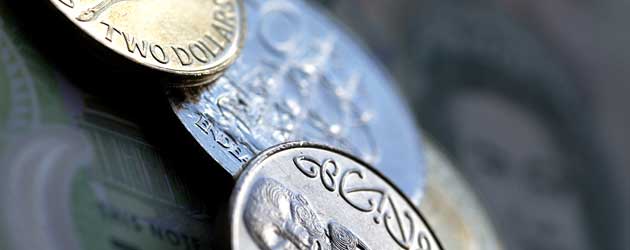
There has been a lot of speculation lately suggesting that the New Zealand Dollar is overvalued, but a recent report from Australian trading company CommSec posits that the ‘Kiwi’ Dollar is in fact fairly priced in relation to its global currency peers.
The survey, which measures the price of an Apple iPad across 46 countries, showed that New Zealand was the 26th most expensive country in the world to purchase the popular devisce. This suggests that the domestic currency is trading close to the middle of the range, and is therefore fairly valued.
According to CommSec, the theory is that a product “should trade at broadly the same price across the globe if exchange rates are adjusting properly”. It is cut from the same elk as the Economist’s Big Mac index, which measures the cost of a McDonald’s burger in different countries.
Back in July, the Big Mac index suggested that the New Zealand Dollar was overvalued by 6.3%, which fanned the flames of discontent among domestic business owners who argued that the strong ‘Kiwi’ Dollar was damaging export prospects by making their products too expensive for foreign buyers.
Indeed, towards the end of July, New Zealand Prime Minister John Key commented that he felt the currency was “overvalued” and that the government would welcome depreciation. This sparked rumours that the Reserve Bank of New Zealand could be on the verge of introducing an interest rate cut. However, the RBNZ opted to maintain the benchmark cash rate at 2.50% and instead decided to place new restrictions on mortgage lending to help soothe the overheating housing market.
Earlier this month the Central Bank said that inflation pressures were likely to heighten over the next few months and suggested that it intends to hike rates in 2014. Analysts now expect a rise of 50 basis points by the end of Q1 next year.
Although the iPad index is only designed as a light-hearted currency comparison measure, the fact that the New Zealand Dollar was not seen to be overvalued is only going to support the RBNZ’s case to tighten monetary policy in the New Year.
The Pound to New Zealand Dollar exchange rate (GBP/NZD) advanced by around 1.5 cents yesterday as the risk-sensitive Antipodean currency was impacted by a sell-off in global equity markets.
The future direction of the pair will largely be dictated by the performance of the UK economy: if data continues to impress inline with the recent stream of positive PMI results then UK interest rate hike bets should take Sterling higher, however, if the British recovery shows signs of slowing then the RBNZ’s hawkish outlook could easily lend the New Zealand Dollar significant support.

Comments are closed.